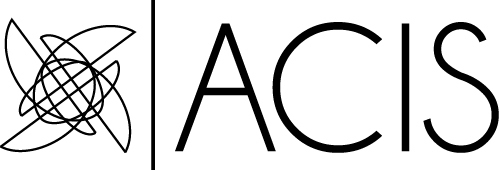
This was my first visit to an ACIS Conference and it proved to be a revelatory experience. I met a whole set of new people coming from different academic fields than mine. Kind of refreshing that!
At times the conference felt that it was happening in the very bowels of the building—none of the “breakout” rooms had any natural light and consequently were a bit grim. This was compounded by the number of parallel sessions running together, which meant that in most, the numbers only rarely achieved double figures. As a consequence, it seemed there was a kind of dulling of argument and less willingness to engage in debate around different perspectives. However, this was saved by two extremely interesting plenary sessions that were based on two excellent thought-provoking contributions by Moynagh Sullivan (National University of Ireland, Maynooth) on “Mother and Child: Subjective Time, Space, History in Emma Donoghue's Room” and Marjorie Howes (Boston College) on “The Irish, Whiteness and Anti-Slavery”—two very different subjects. From the former, a critical theory and analysis of Emma Donoghue's book Room (a book which I love), a presentation I very much enjoyed, in particular the contextual and cultural framework developed by Moynagh. And from the latter, a historical exploration of the relationship between Daniel O' Connell and William Lloyd Garrison, editor of The Liberator, a publication that survived 35 years in the Irish community in the US and was interestingly taken up by the black community. This presentation questioned the relationship between the Irish community and the abolitionist movement, and the arguably low level of engagement of the Irish-American community with anti-slavery campaigners.
Parallel sessions in which I had particular interest were of a more social history nature; a session on Wednesday on “The Body: Abortion, Children and the Church” explored the development of the gendered legal framework for regulating sexuality and sexual behavior in the emerging Irish Free State, with papers given by Keelin Burke (University of Notre Dame), Diarmuid Griffin (National University of Ireland, Galway), and Joe McGrath (University College Dublin). My own session looked at “Transnational Biopolitics: Women, Reproduction and Property, and included an examination of divorce, property rights, and marriage in 19th Century Ireland (Anne McKernan) a case study of sexual abuse in Carlow (Melinda Grimsley-Smith) as well as papers on reproductive justice and injustices in contemporary Ireland. (Dr Pauline Conroy'; Ursula Barry). These papers explored the kind of exclusions women experienced through the 20th Century, bringing together a paper on the Carlow case of sexual control a couple of decades earlier, an analysis of exclusionary legislative change during the 1930s-50s, and my own paper on the links between Ireland and the US that are reflected in current discourses on foetal rights and women's embodiment.
As is so often the case at international and national conferences, technical support was patchy as we tried to deal with different files on different software on different devices in different rooms—that makes one despair of the concept of “technology sharing.” On another front, there were rumors afloat that there had been a low turn-out from male historians due to the fact that the two key plenaries were delivered by women. As history is not my field, I could not possibly comment!
Good luck to Notre Dame for ACIS2016.
